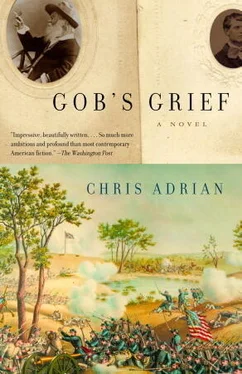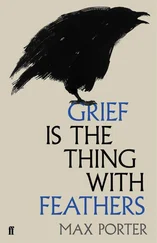The three ladies sat together at a mahogany table in a little conference room in the Capitol — a faulty stove had poisoned the air in the much grander room where Mrs. Woodhull was supposed to make her speech. Various fat, red-nosed politicos sat across the table from her and her two supporters, waiting patiently for her to begin. Walt leaned against a bookshelf at the side of the room, feeling a bit dizzy. He had just recovered, in late November, from an attack of a recurring illness he was sure he’d contracted during his time at Armory Square, a weary, feverish malaise that Gob had skillfully lifted from him.
Besides congressmen and senators and reporters, the room was packed with famous radical females — Mrs. Woodhull had audaciously scheduled her presentation on the very day the Woman’s Righters were opening their winter convention in the capital. Her plan was for them to cancel and come observe as Congress granted her the unprecedented honor of a formal and respectful interview. They did come to observe, and they whispered among themselves in shock. They thought Mrs. Woodhull and her sister — especially her sister — were scandalous. Everyone had heard how Mrs. Woodhull was a Free Lover, how she was divorced, how she had declared in her paper that marriage was the grave of love, and prostitution a profession that ought to be regulated into respectability.
Gob was there, too. He stood next to Walt, hand in hand with a pale child of five or six years, whom he called Pickie and who was, he said, his new ward. “I found him two weeks ago in a drift of snow in Madison Square,” he told Walt. “Could I leave him there? Could I leave him to the weary mercy of an orphanage?” Pickie was a friendly child, but a strange one. Walt decided three minutes after meeting him that he had been driven mad by whatever cruelties he’d suffered before Gob found him.
“There you are!” Pickie said to Walt, when Gob had introduced them. “There you are at last!” He rushed over and gave Walt a hug around the leg. “Pick me up!” he cried. “Pick me up, Uncle Walt!” Walt took him up, and when he gave him an affectionate squeeze the boy made a curious noise, a deep, resonant burp, and the air around him suddenly reeked of blood. Walt put him down. The boy was stroking his face like a fly. Later, Walt noticed that there was a big hole in his beard, as if someone had taken a bite out of it. Wonderful child! Hank said. Wonderful wonderful child!
A very strange boy, but Gob seemed to love him, so Walt was kind to him, and never harped on the boy’s obviously defective nature. Gob petted him and hugged him and fed him hard red candies from out of his pocket. Walt found his attention drawn to the two during the speech. They chattered and whispered like schoolboys, even when Walt shushed them. Gob and the boy were dressed alike in fine gray wool suits with blue waistcoats and neckties that matched the uniforms worn by Mrs. Woodhull, her sister, and the young lady, who, Walt had discovered, was called Maci Trufant. She was employed by Mrs. Woodhull as an editor at Woodhull and Claflin’s Weekly. Walt had decided that she was pretty, after all.
Mrs. Woodhull started out nervous and pale, looking as if she might soon faint under all that powerful attention, but she soon bucked up. Spots of color appeared in her cheeks, and her voice grew strong and mellifluous. Her hand rose to her throat to stroke the petals of the tea rose fastened there. She was speaking from memory, so her other hand was free to wave and undulate, as if conducting the mood and attention of her audience.
It was a pretty speech, and a powerful one. Gob told Walt it had been dictated by Demosthenes, Mrs. Woodhull’s spirit guide, that it had poured out of his mother’s mouth as she lay on her own dining-room table, and that Colonel Blood was only able to keep up with her dictation because Stephen Pearl Andrews had taught him his newfangled method of shorthand. She pleaded for a declaratory act to the effect that women were already entitled to vote by the Fourteenth Amendment. “The sovereign will of the people,” she said, “is expressed in our written Constitution, which is the supreme law of the land. The Constitution makes no distinction of sex. The Constitution defines a woman born or naturalized in the United States, and subject to the jurisdiction thereof, to be a citizen. And it recognizes the right of citizens to vote.”
It was simple and glorious. Walt was sure that he ought to have paid better attention, because it seemed to him that something very important was transpiring in his presence. But he was distracted by little Pickie’s serene pale face, and his candy-red mouth, and his chattering whisper. And being in the Capitol brought to mind the strange night Walt had spent with Gob here, so when he wasn’t contemplating the boy he was contemplating that night. He was still afraid to go back to the Patent Office, lest someone recognize him as a thief or the accomplice to a thief.
After Mrs. Woodhull had finished, after she was applauded at length by every person in the room and whisked away in the arms of the now-adoring suffragists, Walt and Gob went out for a walk with Pickie on the Capitol grounds. They had a little time before they had to attend a party at the Willard Hotel in celebration of the great day. Walt and Pickie went out onto the snow, leaving Gob to stand on the great porch, where shortly Miss Trufant accosted him. He turned away from her after a few moments and came to Walt, packing snow in his hands as he walked.
Walt threw snowballs at Pickie as he climbed on the statue of Washington. Gob threw his own snowball, perfectly aimed, but Walt batted it aside before it could strike his head. Gob clapped his hands. All his autumn gloom was gone. Walt laughed just to see him laugh.
“How does your work go?” Walt asked him. Little Pickie jumped from Washington’s arms and did somersaults in the snow. He sat up, lowered his chin, and snotted in his muffler.
“Excellently!” Gob said, smiling very wide and clapping Walt on the back. “So very well!”
The boy ran over and put his cold hands against Walt’s cheeks, put his red lips to his ear and whispered to him. “My name is Pickie Beecher!” he said. “I come before.”
“He aspires to greatness,” said Gob. “Today he is a Beecher, tomorrow he’ll be an Astor or a Vanderbilt.” He leaned down and looked at the boy, who was dancing in place, but stopped as if Gob had stilled him with his gaze. “Woodhull,” Gob said. “Now you are a Woodhull.” The boy laughed and threw himself down in the snow to roll like a dog in filth. Walt was thinking, Woodhull, I like the sound of it, and Hank said, Walt Woodhull, I like it too. Walt looked away from Gob, who had lifted little Pickie up in his arms. He closed his eyes and imagined Gob, an angel of charity, reaching out to him instead of Pickie, as Walt lay abandoned and forgotten in the snow of Madison Square Park. He opened his eyes again, and saw Miss Trufant standing alone on the porch. When she noticed Walt looking, she turned and walked away.
“I have come to New York to die,” said Canning Woodhull. He and Walt were in a saloon that catered specifically to veterans. There were old regimental flags on the walls, and groups of men — now amputated or perpetually despairing or with ruined health — still loyal to those flags, who sat under them and drank. “My beautiful wife has visions of the future. She sees a paradise coming — crystal cities and sunshiny days. I have told her, Mr. Whitman, that everybody is prescient, everyone can see the future. You can do it now. Close your eyes, calm your mind, extend your extraordinary vision through the mist of time. Do you see? There you are in your coffin. I wanted to be near my wife when I died.”
Читать дальше












